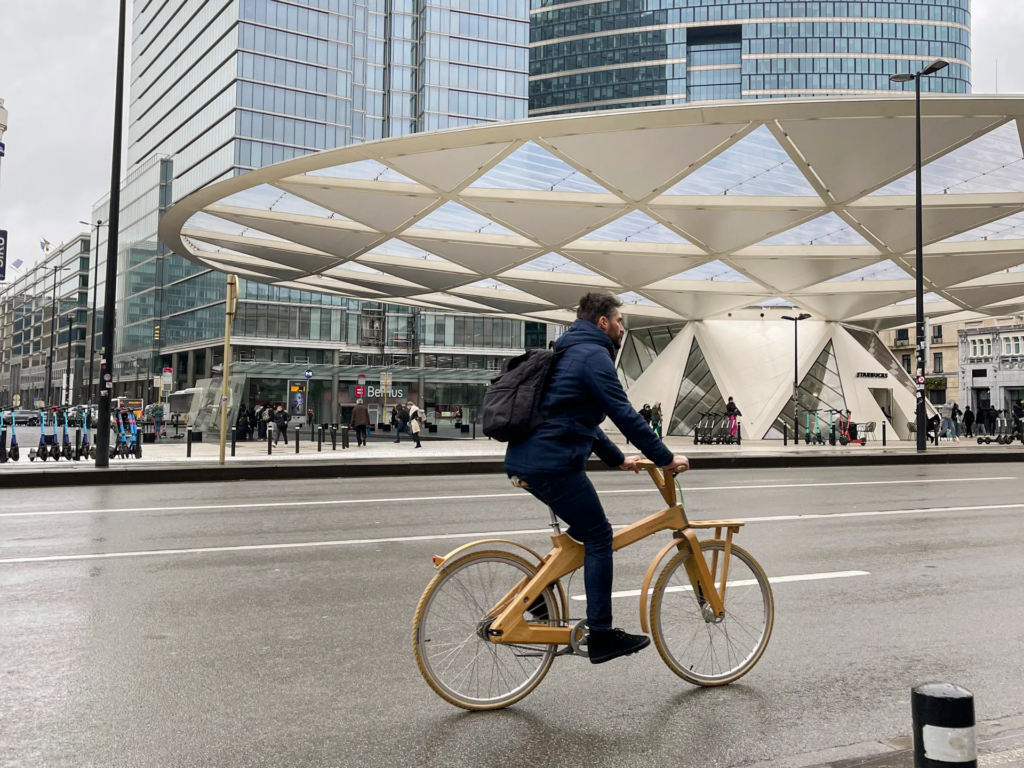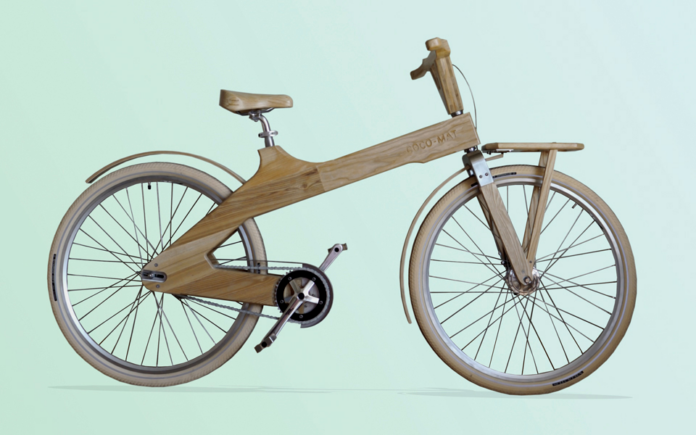“The first wooden bikes were built about six years ago. At first they were used as a marketing tool, but they proved surprisingly practical and people were so interested that the brothers decided to turn them into a proper business. They began selling wooden bicycles soon after, and three years ago branched out into e-bikes as well.
The bike frames are made of American ash from forests that are dedicated to growing trees for lumber. “It’s very environmentally focused and very durable,” Philippou says. “From each tree we can make 50 bikes, and our commitment is that we plant a tree for every adult bike we sell, so it’s a net positive.”
The frames are cut by machine, then sanded and assembled by hand – a manufacturing process that releases much less carbon than traditional bike building.
Philippou says that riding the two-speed and seven-speed models feels just like a regular bike. They aren’t meant for off-road use, but they can handle gravel, and the springiness of the wood provides a little natural shock absorption.
“In fact, the frames that originally had a three-year warranty are now going to have a lifetime guarantee. In the process of time we’ve seen how durable the bikes are, and now we feel confident.” The non-wooden components, including the gearing, has a one-year warranty, and the warranty for the battery is two years.”
The current battery has a range of 40-50km, much like a conventional mid-range e-bike, but the company is currently working on a new model that will keep rolling for up to 100km on a single charge. It’s also investigating the possibility of using Tesla batteries in future bikes.” (Ellis 2022).


I first encountered this brand over the summer while walking through SoHo in NYC with my roomates. One of their wooden bikes parked outside their storefront caught our attention, and naturally as design students, we went inside to find out more.
Perhaps, another reason the Coco-Mat bike frame stood out so much in that moment is because here at OSU we have a lot of students who commute by bike, and in a sea of metal frames, the wooden frame makes a statement. Coco-Mat is likely aware of this, because it seems that part of their marketing strategy is visually juxtaposing their bike across a variety of global contexts, showing consumers everywhere that they can rethink how common objects are produced and designed.
Another thing I find unique about Coco-Mat is that despite their international marketing strategy, they don’t fall into the entrapments of globalization that typically lead to exploitation. Location is central to their brand: bikes are locally manufactured in Athens, local residents of Athens are employed, the Coco-Mat parent company that produces bedding furnishes hotels with their products, therefore contributing to the local tourism industry, and of course their tree planting takes place in the local forests. Traditionally with globalization, businesses will expand through outsourcing labor and/or material procurement.
What this means is that it is not just the material and warranty of the bikes that makes Coco-Mat sustainable, it is because their brand is based in locality that Coco-Mat is successfully sustainable. This prompts me to not only think about sustainability from a material standpoint for my capstone, but also from social and economic standpoints informed by local life of the park I end up choosing as my focus.
Ellis, C. (2022, February 13). Sustainable stylish and springy – wooden e-bikes make a lot of sense. TechRadar. https://www.techradar.com/news/sustainable-stylish-and-springy-wooden-e-bikes-could-be-the-future-of-commuting




